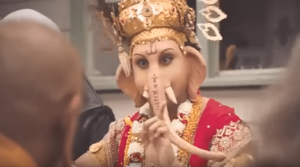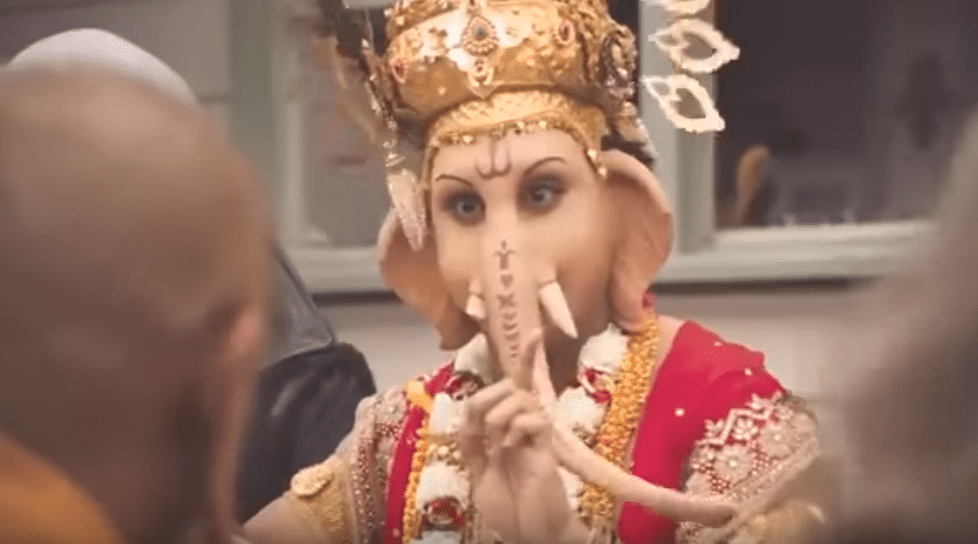In a rare move, an Advertising Standards Board ruling regarding an ad by Meat & Livestock Australia (MLA) has been overturned following an independent review.
What happened?
To celebrate spring lamb, MLA produced an ad entitled “You never lamb alone” and which depicted a group of religious icons and deities sitting down to enjoy an outdoor dinner, featuring lamb. The ad screened for one week in September 2017.
Guests at the dinner included Jesus, Buddah, Ron El Hubbard, Moses, Aphrodite, Zeus and the Hindu deity, Ganesha. The prophet Mohammed is absent from the dinner, apparently due to child care commitments (although it’s worth noting that depictions of Mohammed are forbidden according to Islam). The hostess, who professed to have no religious affiliation, commented that it was a “nightmare catering for you lot with all your dietary requirements”.
During the course of the ad, Jesus is shown to change wine to water (referred to as a “reverse miracle”), Moses parts peas on a plate and Aphrodite receives numerous messages of love via her smart phone. At one point, Buddah asks whether the guests should “address the elephant in the room”, in a clear reference to Ganesha .
The theme of the ad was that “lamb is a meat we can all eat”.
The complaints
The Board received many complaints from members of the Hindu community in Australia concerning the depiction of Ganesha sitting at a table where lamb and alcohol were served – Ganesha is a vegetarian and does not consume alcohol. Adding fuel to the fire, the timing of the ad coincided with the Ganesha Chaturthi festival.
Said one complainant “God Ganesha is a vegetarian and does not drink alcohol. He is depicted in this advert, along with Buddha, in a very rude insensitive way that is most offensive to Hindus around the world and Australia. God Ganesha is shown promoting the eating of meat (lamb) and that is really very insensitive to the community”.
Further complaints alleged religious vilification on the following grounds that:
- In context the words “the elephant in the room” was offensive to Hindus as the common usage of the phrase is that there’s a problem to be addressed;
- Ganesha was depicted by an actor with heavily accented English, whereas the actors depicting the other icons or deities had Australian accents; and
- no jokes were made about the other icons or deities at the table.
For these reasons, various complainants attest that Ganesha was treated less favourably than the other icons and deities depicted in the ad.
Section 2.1 of the AANA Code of Ethics states:
“Advertising or Marketing Communications shall not portray people or depict material in a way which discriminates against or vilifies a person or section of the community on account of race, ethnicity, nationality, gender, age, sexual preference, religion, disability or political belief.”
The controversy also led to the Indian government lodging an official diplomatic complaint with the Australian government.
MLA’s response to the complaints
In its response, MLA advised that it conducted research and consulted with experts in multi-faith religious studies from Australian universities, and feedback from those experts was taken into account during the creative process. MLA’s research suggested that, while many Hindus choose to practice vegetarianism, there’s no strict requirement to do so under the Hindu faith.
Regarding the comment “shall we address the elephant in the room”, MLA said this was intended to be light hearted and humorous, and a nod to the usual application of the idiom, with “the elephant in the room” being that topics such as religion are not normally discussed at dinner parties.
The Board’s decision
A minority of the Board felt that the ad did present Ganesha as a meat eater – the hostess’ comment that it was hard to cater for such diverse requirements together with the line that lamb “is a meat we can all eat” suggest that the lamb would be acceptable to both Ganesha and Buddah (himself a vegetarian). The minority opinion was that depicting Ganesha as a meat eater would “undermine an important characteristic of this God, and that this is therefore less favourable treatment given to the Hindu deity”, and so the ad discriminated on religious grounds against the Hindu community.
Overall, however, the Board determined that:
- depicting a group of religious deities and icons eating together does not breach the Code on the grounds of religion;
- as Ron L Hubbard was portrayed by an actor with an American accent, the gathering was one of inclusion and no attendee was treated less favourably or unfairly than any other;
- Ganesha is not shown to eat meat at any time;
- Ganesha is shown toasting the gathering with water, and therefore care had been taken to ensure there was no suggestion that Ganesha had consumed alcohol; and
- the overall tone of the ad was light hearted and humorous, and intended to present an inclusive, multi-faith gathering.
Independent review
Following further complaints from the Hindu community, an independent review was conducted. The reviewer found that there were “substantial flaws” in the Board’s original decision concerning the “elephant in the room” comment. Unlike the other humorous depictions in the ad, the “elephant in the room” comment could be construed as a direct reference to Ganesha’s appearance. While the Board was of the view that Ganesha took charge of the situation and does not appear to be concerned or upset by the reference, clearly many in the Hindu community were offended. The independent reviewer also considered the usual meaning of the phrase “elephant in the room” in the context of Ganesha and stated “It is not clear why Lord Ganesha or his depiction is a problem or issue, but the imputation is negative”. According to the Code:
A negative depiction of a group or people in society [in this case an individual representative of the group] may be found to breach section 2.1 even if humour is used. The depiction will be regarded as negative if a negative impression is created by the imagery and language used in the advertisement.
The independent reviewer found that “even in the context of the remark being made in a social, good-humoured occasion when a degree of tolerance of others’ views, appearances and beliefs can be expected, this crossed the line”.

The Board was therefore asked to reconsider its decision on this point. The Board ultimately found that Ganesha was (by virtue of the “elephant in the room” comment) the only deity singled out for his physical appearance in a negative way (namely, that the elephant in the room is a problem to be dealt with). According to Hindu faith, Ganesha represents perfection, and so to ridicule his appearance is highly offensive to Hindu people. The Board also determined that more consideration was shown to the prophet Mohammed in not depicting him at all. Therefore, the majority of the Board determined that Ganesha was given less favourable treatment and so the ad amounted to vilification of the Hindu faith.
MLA acknowledged the Board’s revised decision but respectfully disagreed with it, reiterating that the ad was intended to promote inclusiveness in a light-hearted way.
The takeout
Sensitive subject matters in advertising require careful consideration. Although the MLA did the right thing in consulting multi-faith experts, it may have been prudent to speak directly with an expert of the Hindu faith.
If you have any questions or concerns about your upcoming campaigns, please don’t hesitate to contact us for an obligation free discussion.







